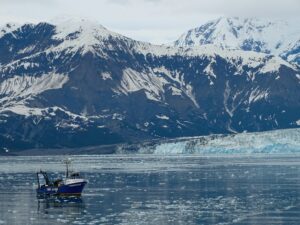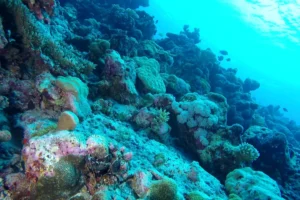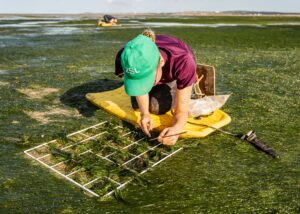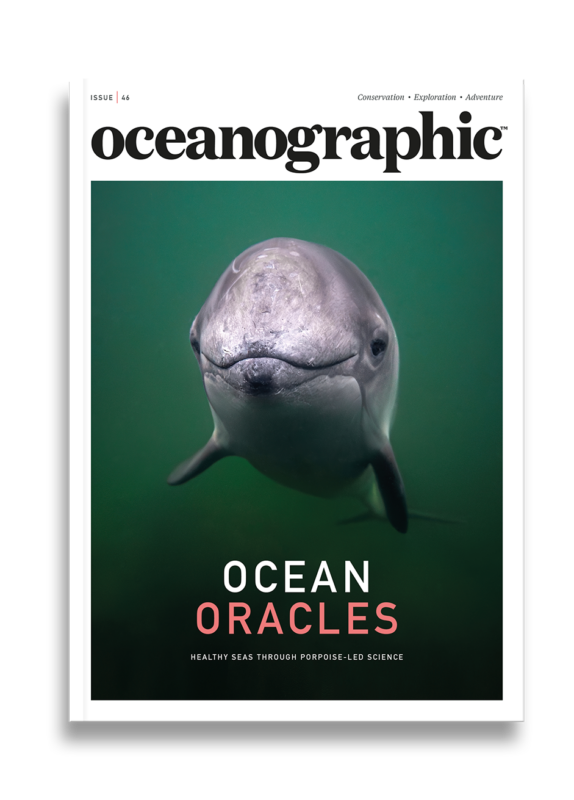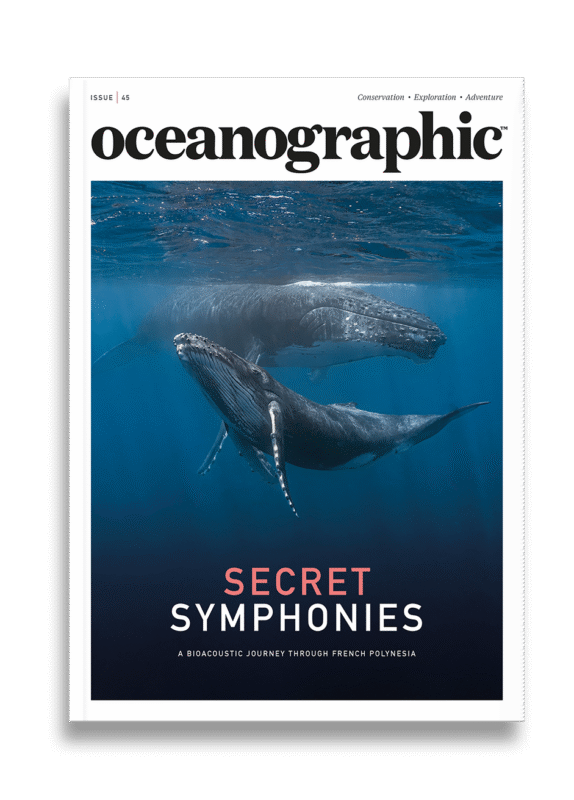Marine heatwave leaves critical Florida corals "functionally extinct"
Following a record-breaking marine heatwave in the summer of 2023 and the ninth mass coral bleaching event on record for the region, staghorn and elkhorn corals have been reduced to populations so small, they can no longer reproduce.
Research which first documented the ‘catastrophic mortality’ of two of Florida’s cornerstone coral species – staghorn and elkhorn coral – has now confirmed what many marine scientists had started to fear: the functional extinction of Acropora corals from Florida’s Coral Reef.
Now published in the scientific journal, Science, a new study confirms that following a record-breaking marine heatwave in the summer of 2023 and the ninth mass coral bleaching event on record for the region, both the Acropora cervicornis (staghorn) and Acropora palmata (elkhorn) corals have been reduced to populations so small, they can no longer reproduce.
These branching corals, once the backbone of Caribbean and Florida reef structures, play critical ecological roles as habitat builders and coastal protectors. Their loss marks not just the decline of individual species, but the collapse of a vital ecological function.
Led by the National Oceanic and Atmospheric Administration’s Coral Reef Watch and Chicago’s Shedd Aquarium, the research brought together 47 authors from 22 institutions to chart the scale of the die-off. Surveys of more than 52,000 coral colonies across 391 sites revealed staggering losses: mortality rates of 98 – 100% in the Florida Keys and Dry Tortugas, and around 38% further north, where cooler waters offered brief reprieve.
While some individual colonies persist, scientists say their numbers are now too low to sustain essential reef-building activity. It’s a threshold known as functional extinction, and one which often precedes complete species loss.
“We’re running out of time,” said Dr. Ross Cunning, research biologist at Shedd Aquarium and co-first author of the study. “Extreme heatwaves are increasing in frequency and severity due to climate change, and without immediate, ambitious actions to slow ocean warming and boost coral resilience, we risk the extinction of even more corals from reefs in Florida and around the world.”
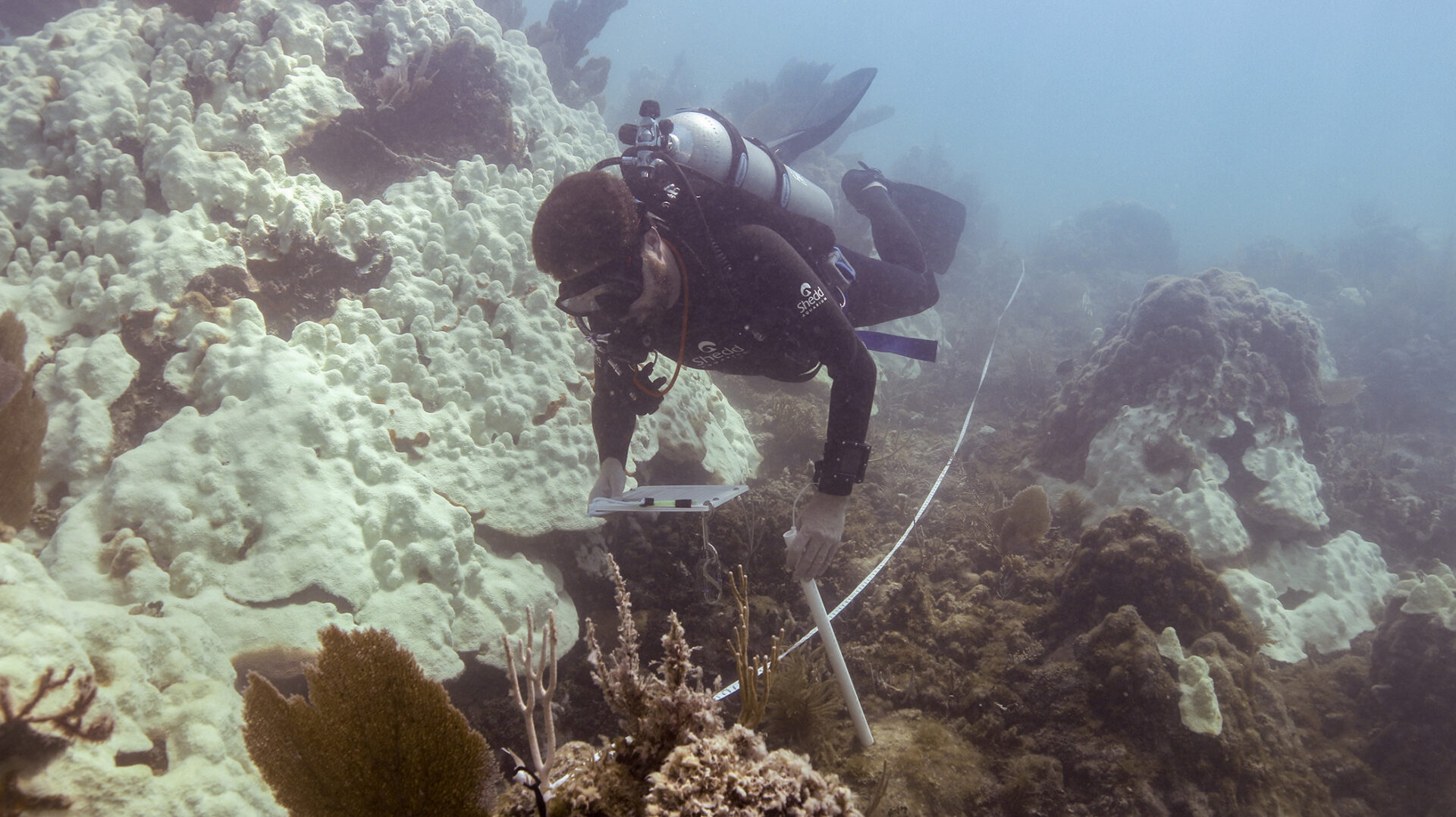
The 2023 marine heatwave brought the highest recorded sea temperatures in Florida’s Coral Reef system in more than 150 years. Heat stress lasted two to three months – up to four times higher than in any previously recorded year.
For Acropora, the event accelerated a decline decades in the making. Disease, pollution, and repeated bleaching had already pushed populations to the brink. The heatwave was a tipping point. With numbers now critically low and environmental pressures mounting, natural recovery is unlikely without human intervention.
In response, scientists are turning to coral ‘gene banks’ – living repositories established in aquariums and offshore nurseries – to safeguard what remains. Survivors rescued from the heatwave are now being nurtured under controlled conditions to preserve genetic diversity and support future restoration.
But experts warn that restoration alone cannot succeed unless the underlying driver – rising ocean temperatures – is addressed. The study calls for adaptive strategies, such as introducing heat-tolerant coral strains or manipulating symbiotic algae to enhance resilience, alongside urgent global climate action.
Florida’s reefs are among the most studied in the world, yet this event underscores a broader truth: even with decades of research and conservation, ocean warming is outpacing coral adaptation. As scientists note, the loss of Acropora corals is not an isolated tragedy, but a harbinger for reefs globally.
Coral reefs support roughly a quarter of all marine life, feed hundreds of millions of people, and protect coastlines from up to 90% of wave energy and flooding. Their global economic value is estimated at $10 trillion per year.
The full research article, ‘Functional extinction of Acropora corals from Florida’s Coral Reef following a record marine heatwave’, is available at Science.


"*" indicates required fields
Printed editions
Current issue
Back issues

Back Issues
Issue 43 Sir David Attenborough’s ‘Ocean’
Enjoy so much more from Oceanographic Magazine by becoming a subscriber.
A range of subscription options are available.


